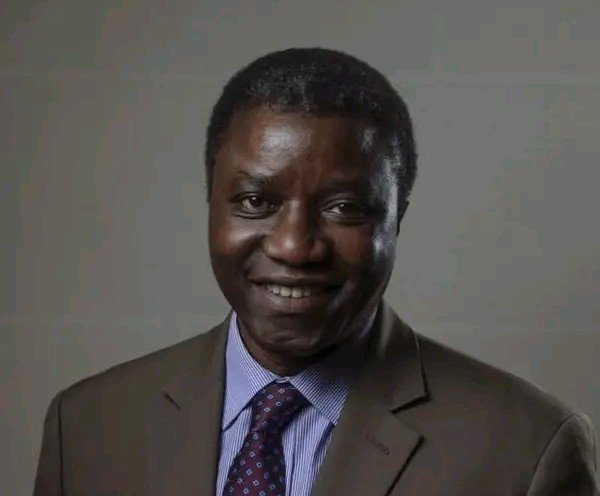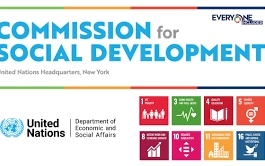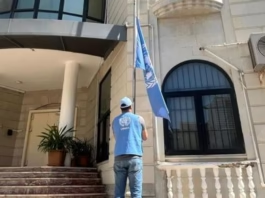Introduction to the Appointment
On October 12, 2023, United Nations Secretary-General António Guterres officially announced the appointment of Chaloka Beyani as the Special Adviser on the Prevention of Genocide. This pivotal role underscores the UN’s enduring commitment to addressing the heinous crime of genocide and ensuring that preventative measures are effectively implemented worldwide. The appointment is especially significant given the increasing complexities of global conflicts that pose threats to vulnerable populations.
Chaloka Beyani brings a wealth of experience and expertise to this critical position. A renowned legal scholar and human rights advocate, Beyani previously served as the Special Rapporteur on the human rights of internally displaced persons. His track record demonstrates a deep understanding of the socio-political factors that lead to conflict and mass atrocities, making him well-suited to lead initiatives aimed at genocide prevention. Guterres expressed confidence in Beyani’s ability to navigate the intricate dynamics of international relations and mobilize a global response to the challenges posed by genocide.
Before Beyani’s appointment, Alice Wairimu Nderitu held the position, contributing significantly to the UN’s efforts in genocide prevention. Nderitu’s tenure was marked by important strides in awareness, advocacy, and action against potential genocidal acts, particularly in regions facing severe human rights violations. She set a strong foundation that Beyani can build upon. Additionally, during the transition period, Virginia Gamba and Pramila Patten provided crucial interim support, ensuring continuity in the mission and facilitating a smooth handover of responsibilities. Their collaborative effort showcases the importance of teamwork in the fight against genocide.
Chaloka Beyani’s Professional Background
Chaloka Beyani is a distinguished figure in the field of international law and human rights, possessing a rich academic and professional portfolio. Currently, he holds a prominent position as a Professor of International Law at the London School of Economics (LSE), where he specializes in subjects of crucial relevance to humanitarian issues. His extensive knowledge is reflected through his scholarly contributions, which explore the intersection of human rights, refugee law, and international humanitarian law, thereby making significant strides in academic discourse.
Prior to his tenure at LSE, Professor Beyani has served in various prestigious roles that underline his expertise in international humanitarian matters. He notably acted as the United Nations Independent Expert on the Human Rights of Internally Displaced Persons, providing vital insights into the challenges faced by displaced populations and advocating for their rights on a global stage. His work with the UN exemplifies his commitment to addressing intricate human rights dilemmas and showcases his capability in navigating complex international frameworks effectively.
In addition to his work with the UN, Chaloka Beyani has collaborated with the African Union, where he contributed to policies and initiatives aimed at enhancing human rights standards across the continent. His diverse experiences have armed him with a profound understanding of the political, social, and historical contexts that underpin human rights issues, making his input invaluable in deliberative contexts related to genocide prevention.
Beyani’s cumulative experiences in academia, coupled with his active participation in international organizations, underline not only his qualifications but also his passion for humanitarian advocacy. His appointment as the UN Special Adviser on Genocide Prevention is therefore a strategic choice, reflecting his unwavering dedication to promoting human rights and preventing atrocities on a global level.
Key Expertise on Human Rights and Genocide Prevention
Chaloka Beyani’s extensive background in human rights and genocide prevention significantly positions him for his new role as UN Special Adviser on Genocide Prevention. His professional journey has been marked by a steadfast commitment to addressing critical issues such as the rights of internally displaced persons and the prevention of mass atrocities. His expertise encompasses a profound understanding of the intricacies involved in national constitutions and the necessary safeguards to ensure the protection of vulnerable populations.
Throughout his career, Beyani has contributed to various high-profile panels and advisory groups focused on human rights. This includes his involvement with the United Nations and various regional organizations, where he provided insight into building frameworks for conflict resolution and human rights adherence. His work in treaty-making has been particularly notable, as it involves negotiating and drafting international agreements aimed at bolstering human rights protections and genocide prevention measures. This experience is essential for his new responsibilities, as it enables him to navigate the complex intersection of international law and humanitarian needs effectively.
Beyani’s scholarship and practical experience enrich his advisory roles, facilitating a nuanced approach to the pressing challenges faced by those affected by genocide and systemic human rights abuses. His insights into the effectiveness of existing treaties and national laws are vital for enhancing preventive strategies at both local and international levels. Given the increasing prevalence of conflicts leading to displacement and atrocities worldwide, his input is expected to inform comprehensive responses, ensuring that the principles of human rights are upheld and integrated into every effort aimed at prevention. By leveraging his vast knowledge, Chaloka Beyani will play a crucial role in shaping policies that seek to combat genocide and support affected communities globally.
The Path Forward for Genocide Prevention
As Chaloka Beyani steps into his role as the UN Special Adviser on Genocide Prevention, expectations regarding his impact on global efforts to curtail these heinous acts are substantial. The primary goal of this position is to enhance the United Nations’ ability to prevent genocide through timely actions, strategic initiatives, and effective policy-making. Given the complexities surrounding the prevention of genocide, Beyani is likely to face numerous challenges, including political resistance, resource limitations, and the critical need for cross-border cooperation.
One of the strategies that may be employed under Beyani’s guidance could involve enhancing early warning systems. These systems are pivotal in identifying potential threats and fostering rapid responses before situations escalate into mass atrocities. His expertise in human rights law may aid in establishing frameworks that not only identify risks but also outline intervention mechanisms to protect vulnerable populations. Furthermore, Beyani may prioritize the integration of education and awareness programs, aimed at both grassroots and international levels, to cultivate a deeper understanding of the indicators of genocide.
Underlying all these strategies is the necessity for collaborative international efforts. Genocide prevention is not solely the responsibility of any one nation but requires a united front from multiple stakeholders. This includes governmental bodies, non-governmental organizations, and civil society groups working together to hold violators accountable while offering protection to at-risk communities. Beyani’s role could extend to fostering partnerships and dialogues that encourage countries to share intelligence, resources, and best practices fostering a global commitment to respecting human rights.
Ultimately, Beyani’s appointment heralds a potential turning point in how the international community responds to genocide. By implementing effective strategies and prioritizing collaboration, he has the ability to reshape the UN’s approach to preventing these atrocities, paving the way for more timely and effective interventions.




